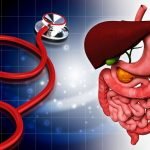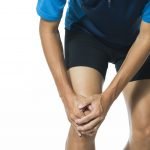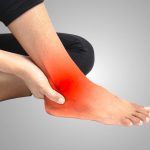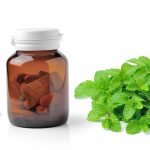High Levels of HDL-Cholesterol May NOT be so Desirable After Menopause
Node Smith, ND
A new study has suggested that high density lipoprotein (HDL), the “good cholesterol,” may not represent the same cardiovascular risk for post-menopausal women.1 The body needs cholesterol. All cellular membranes and hormones are made from this vital element. It is transported throughout the body by lipoproteins – this allows the hydrophobic cholesterol to be protected by hydrophilic phospholipids.
High density lipoprotein (HDL), the “good cholesterol,” may not represent the same cardiovascular risk for post-menopausal women
There are two basic forms of these lipoproteins – high density and low density. Low density is comprised mainly of cholesterol and is the form that is thought to contribute to arterial plaquing.
HDL is considered to be cardioprotective
One of its roles is to bind cholesterol within the blood and carry it back to the liver to be broken down. A higher level of HDL compared to LDL (low density lipoprotein) is generally considered to be an indicator of lowered cardiovascular risk.
The Findings
But in this latest research study, cardiovascular risks along with various HDL measurements were analyzed relative to menopausal status in 1,138 women. The women had been followed since 1999. The findings of the study suggest that the cardioprotective mechanisms of HDL may be altered by post-menopausal factors.
The findings of the study showed that HDL levels were actually associated with an increased, not a decreased, atherosclerosis risk in postmenopausal women. This is concerning in that HDL levels, which are generally considered to be an indicator of heart health, could be masking heart disease in this population.
Increased risk associated with high HDL was most significant in the following women
The increased risk associated with high HDL was most significant in women who had reached menopause at a later age, and who had been postmenopausal for 10 years or more.
The particle size of the HDL-cholesterol did matter. Larger particle size was associated with increased cardiovascular disease risk, while the presence of smaller particle sized HDL was still seen to be beneficial in postmenopausal women.
Source:
- El khoudary SR, Ceponiene I, Samargandy S, et al. HDL (High-Density Lipoprotein) Metrics and Atherosclerotic Risk in Women: Do Menopause Characteristics Matter? MESA. Arterioscler Thromb Vasc Biol. 2018
Image Copyright: <a href=’https://www.123rf.com/profile_absolutimages’>absolutimages / 123RF Stock Photo</a>
 Node Smith, ND, is a naturopathic physician in Portland, OR and associate editor for NDNR. He has been instrumental in maintaining a firm connection to the philosophy and heritage of naturopathic medicine among the next generation of docs. He helped found the first multi-generational experiential retreat, which brings elders, alumni, and students together for a weekend camp-out where naturopathic medicine and medical philosophy are experienced in nature. Four years ago he helped found the non-profit, Association for Naturopathic ReVitalization (ANR), for which he serves as the board chairman. ANR has a mission to inspire health practitioners to embody the naturopathic principles through experiential education. Node also has a firm belief that the next era of naturopathic medicine will see a resurgence of in-patient facilities which use fasting, earthing, hydrotherapy and homeopathy to bring people back from chronic diseases of modern living; he is involved in numerous conversations and projects to bring about this vision.
Node Smith, ND, is a naturopathic physician in Portland, OR and associate editor for NDNR. He has been instrumental in maintaining a firm connection to the philosophy and heritage of naturopathic medicine among the next generation of docs. He helped found the first multi-generational experiential retreat, which brings elders, alumni, and students together for a weekend camp-out where naturopathic medicine and medical philosophy are experienced in nature. Four years ago he helped found the non-profit, Association for Naturopathic ReVitalization (ANR), for which he serves as the board chairman. ANR has a mission to inspire health practitioners to embody the naturopathic principles through experiential education. Node also has a firm belief that the next era of naturopathic medicine will see a resurgence of in-patient facilities which use fasting, earthing, hydrotherapy and homeopathy to bring people back from chronic diseases of modern living; he is involved in numerous conversations and projects to bring about this vision.










